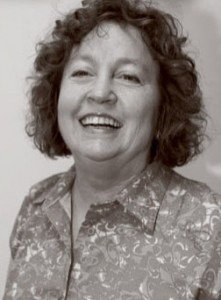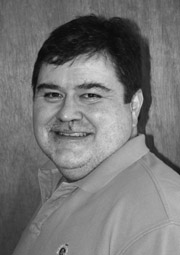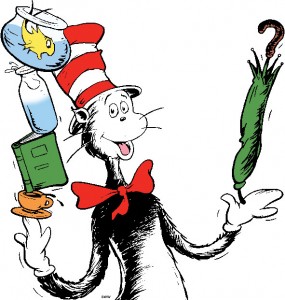Monthly Archives: March 2013
2013 Youth Arts awards given by PC Cultural Commission
COUNTY — The Pickens County Cultural Commission’s Youth Arts 2013 is in full swing. A March 2 kickoff reception at the Pickens County Museum was attended by more than 800 proud parents, grandparents, uncles, aunts, friends, and, of course, the talented young artists that created the 879 works of art that are on display at the museum through March 28.
Gap Hill to host fundraiser for Dominican mission
SIX MILE — Pickens-Twelve Mile Baptist Association’s Gap Hill Baptist Church is leading the upcoming trip to Dominican Republic in April 2013.
A dedicated team of veteran mission workers equipped with a medical doctor, a dentist, and a hygienist will provide medical help in the communities. Others will continue construction at New Jerusalem Church, with plans to complete the second floor of the building. This group will also have the privilege and opportunity to give testimony and evangelize in the schools, as well as speak in church services at several locations throughout their work week there.
BI-LO sponsors hunger relief program to benefit food bank
PICKENS — In light of current economic conditions, many hunger relief organizations struggle with growing clientele bases and diminished contributions. With such a critical need in the community, BI-LO worked with members of the Pickens area to provide much-needed food for United Christian Ministries of Pickens County.
Monday, Nov. 12, through Wednesday, Dec. 26, members of the Pickens community joined to help neighbors in need by making a donation to the BI-LO Hunger Relief program. Each donation made helped provide items most requested by the food banks, such as macaroni & cheese, beans, soup, dry spaghetti, spaghetti sauce and tuna.
Looking back, farm life was good
On The Way
By Olivia Fowler
When we were children we’d sit out on Grandmama’s front porch and watch the cropduster fly straight towards the house as the cotton dust fell over cotton rows that stretched out to the horizon.
What is enough?
Life As I Know It
By Nicole Daughhetee
I would hazard to guess that most of my readers know that I can be feisty and passionate when I feel strongly about a particular issue, and this happens to be one of those times.
Let me preface what I am about to write by saying that I can completely understand why the majority of the SDPC Board of Trustees and the SDPC don’t want to get involved in litigation with the folks from the Freedom from Religion Foundation.
‘I’ve thot a thold”
All About Ben
By Ben Robinson
Last week, I had to admit that I was beginning to take on a cold. It wasn?t easy, because its hard for anyone to understand anything I say when I have a cold.
Dr. Seuss’ life
Ted Geisel was a shy, married man who never had children of his own but found a way as the author “Dr. Seuss” to spark children’s imaginations around the world. With the use of silly words that set an original theme, tone, and mood for his stories as well as curlicue drawings of rascally animals, Geisel created books that became beloved favorites of children and adults alike.
Wildly popular, Dr. Seuss’s books have been translated into more than 20 languages, and several have been made into television cartoons and major motion pictures.
Growing Up: Dr. Seuss as a Boy
Theodor Seuss Geisel was born in Springfield, Mass. His father, Theodor Robert Geisel, helped manage his father’s brewery and in 1909 was appointed to the Springfield Park Board. Geisel tagged along with his father for behind-the-scene peeks at the Springfield Zoo, bringing along his sketchpad and pencil for exaggerated doodling of animals. Geisel met his father’s trolley at the end of each day, where he was handed the comic page full of eccentric humor from the Boston American.
Although his father influenced Geisel’s love of drawing, Geisel credited his mother, Henrietta Seuss Geisel, for the most influence on his writing technique. Henrietta would read to her two children with rhythm and urgency, the way she had sold pies in her father’s bakery. Thus Geisel had an ear for meter and loved to make up nonsense rhymes early on.
While his childhood seemed idyllic, all was not easy. During World War I (1914-1919), Geisel’s peers ridiculed him for being of German ancestry. To prove his American patriotism, Geisel became one of the top U.S. Liberty Bond sellers with the Boy Scouts.
It was to be a great honor when former U.S. President Theodore Roosevelt came to Springfield to award medals to the top bond sellers, but there was a mistake — Roosevelt had only nine medals in hand. Geisel, who was child number 10, was swiftly escorted off-stage without receiving a medal. Traumatized by this incident, Geisel had a fear of public speaking for the rest of his life.
In 1919, Prohibition began, forcing the close of the family’s brewery business and creating an economic setback for Geisel’s family.
Dartmouth College and a Pseudonym
Geisel’s favorite English teacher urged him to apply to Dartmouth College, and in 1921, Geisel was accepted. Admired for his silliness, Geisel drew cartoons for the college humor magazine, Jack-O-Lantern. Spending more time on his cartoons than he should, his grades began to falter. After Geisel’s father informed his son how unhappy his grades made him, Geisel worked harder and became Jack-O-Lantern’s editor-in-chief his senior year.
However, Geisel’s position at the paper ended abruptly when he was caught drinking alcohol (it was still Prohibition, and buying alcohol was illegal). Unable to submit to the magazine as punishment, Geisel came up with a loophole, writing and drawing under a pseudonym — “Seuss.”
After graduating from Dartmouth in 1925 with a B.A. in liberal arts, Geisel told his father that he had applied for a fellowship to study English literature at Lincoln College in Oxford, England. Extremely excited, Geisel’s father had the story run in the Springfield Union newspaper that his son was going off to the oldest English-speaking university in the world. When Geisel didn’t get the fellowship, his father decided to pay the tuition himself to avoid embarrassment.
Geisel didn’t do well at Oxford. Not feeling as intelligent as the other Oxford students, Geisel doodled more than he took notes. Helen Palmer, a classmate, told Geisel that instead of becoming a professor of English literature, he was meant to draw. After one year of school, Geisel left Oxford, traveled Europe for eight months, doodling curious animals, wondering what kind of a job he could get as a doodler of zany beasts.
Dr. Seuss Has an Advertising Career
Upon returning to the U.S., Geisel was able to freelance a few cartoons in The Saturday Evening Post. He signed his work “Dr. Theophrastus Seuss” and then later shortened it to “Dr. Seuss.” At the age of 23, Geisel got a job as a cartoonist for Judge magazine in New York at $75 per week and was able to marry his Oxford sweetheart, Helen Palmer.
Geisel’s work included drawing cartoons and advertisements with his unusual, zany creatures. Luckily, when Judge magazine went out of business, Flit Household Spray, a popular insecticide, hired Geisel to continue drawing their advertisements for $12,000 a year. Geisel’s ads for Flit appeared in newspapers and on billboards, making Flit a household name with Geisel’s catchy phrase: “Quick, Henry, the Flit!”
Geisel also continued to sell cartoons and humorous articles to magazines such as Life and Vanity Fair.
Dr. Seuss Becomes a Children’s Author
Geisel and Helen loved to travel. While on a ship to Europe in 1936, Geisel made up a limerick to match the grinding of the ship’s engine rhythm as it struggled against rough seas. Six months later, after perfecting the story and adding drawings about a boy’s untruthful walk home from school, Geisel shopped his children’s book to publishers. During the winter of 1936-37, 27 publishers rejected the story, saying they only wanted stories with morals.
On his way home from the 27th rejection, Geisel was ready to burn his manuscript when he ran into Mike McClintock, an old Dartmouth College buddy who was now an editor of children’s books at Vanguard Press. Mike liked the story and decided to publish it.
The book, renamed from “A Story That No One Can Beat” to “And To Think That I Saw It On Mulberry Street,” was Geisel’s first published children’s book and was praised with good reviews for being original, entertaining, and different. While Geisel went on to write more books of exuberant Seuss lore for Random House (who lured him away from Vanguard Press), Geisel said that drawing always came easier than writing.
WWII Cartoons
After publishing a large number of political cartoons in PM magazine, Geisel joined the U.S. Army in 1942. The Army placed him in the Information and Education Division, working with Academy Award-winning director Frank Capra at a leased Fox studio in Hollywood known as Fort Fox. While working with Capra, Captain Geisel wrote several training films for the military, which earned Geisel the Legion of Merit.
After the war, two of Geisel’s military propaganda films were turned into commercial films and won Academy Awards. “Hitler Lives?” (originally “Your Job in Germany”) won an Academy Award for Short Documentary, and “Design for Death” (originally “Our Job in Japan”) won an Academy Award for Best Documentary Feature.
During this time, Helen found success by writing children’s books for Disney and Golden Books, including “Donald Duck Sees South America,” “Bobby and His Airplane,” “Tommy’s Wonderful Rides” and “Johnny’s Machines.” After the war, the Geisels remained in La Jolla, Calif., to write children’s books.
The Cat in the Hat and More Popular Books
With World War II over, Geisel returned to children’s stories and in 1950 wrote an animated cartoon titled “Gerald McBoing-Boing” about a child who makes noises instead of words. The cartoon won an Academy Award for Cartoon Short Film.
In 1954, Geisel was presented with a new challenge. When journalist John Hersey published an article in Life magazine stating that children’s first readers were boring and suggested that someone like Dr. Seuss should write them, Geisel accepted the challenge.
After looking at the list of words he had to use, Geisel found it difficult to be imaginative with such words as “cat” and “hat.” At first thinking he could pound the 225-word manuscript out in three weeks, it took Geisel more than a year to write his version of a child’s first reading primer. It was worth the wait.
The now immensely famous book, “The Cat in the Hat” (1957), changed the way children read and was one of Geisel’s biggest triumphs. No longer boring, children could learn to read while also having fun, sharing the journey of two siblings who get stuck inside on a cold day with a troublemaker of a cat.
“The Cat in the Hat” was followed that same year by another big success, “How the Grinch Stole Christmas!,” which stemmed from Geisel’s own aversion toward holiday materialism. These two Dr. Seuss books made Random House the leader of children’s books and Dr. Seuss a celebrity.
Awards, Heartache, and Controversy
Dr. Seuss was awarded seven honorary doctorates (which he often joked made him Dr. Dr. Seuss) and the 1984 Pulitzer Prize. Three of his books, “McElligot’s Pool” (1948), “Bartholomew and the Oobleck” (1950), and “If I Ran the Zoo” (1951), won Caldecott Honor Medals.
All the awards and successes, however, couldn’t help cure Helen, who had been suffering for a decade from a number of serious medical issues, including cancer. No longer able to stand the pain, she committed suicide in 1967. The following year, Geisel married Audrey Stone Diamond.
Although many of Geisel’s books helped children learn to read, some of his stories were met with controversy due to political themes such as “The Lorax” (1971), which depicts Geisel’s repulsion of pollution, and “The Butter Battle Book” (1984), which depicts his disgust with the nuclear arms race. However, the latter book was on the New York Times bestseller list for six months, the only children’s book to achieve that status at the time.
Dr. Seuss Dies
Geisel’s final book, “Oh, the Places You’ll Go” (1990), was on the New York Times bestseller list for more than two years and remains a very popular book to give as a gift at graduations.
Just a year after his last book was published, Ted Geisel died in 1991 at the age of 87 after suffering from throat cancer.
Books of famed children’s author still teach children the joys of reading decades later
By Nocole Daughhetee
Courier Staff
I am a planner and an organizer, and when I found out I was pregnant with my first daughter, my skills went into some sort of hyper-drive. Filled with excitement and anticipation, I wanted to create the perfect environment to welcome her into the world.
Along with the traditional matchy-matchy crib, changing station, armoire, cutesy animal-themed bedding and oodles of pink (a color I never before would have considered for a room in my home), I also joined a book club for her.
Courier Obits 3-6-13
Walt McJunkin
Liberty — Walter Ansel “Walt” McJunkin, 88, of 105 Mae Street, died peacefully on Saturday, March 2, 2013 at his residence surrounded by his loving family.
Born at his family home in Wareplace, and raised in Greenville he was a son of the late Ben and Pauline Williams McJunkin. He was a faithful and loving servant to his Lord and Savior Jesus Christ, a devoted husband, wonderful father, grandfather, and great grandfather. Walt attended Welcome School and was later a scholarship athlete at Newberry College. He also played professional baseball in the Coastal Plain League where he was a player and player manager. He retired from Kanawha Life Insurance Company. Walt served on Liberty City Council for 11 terms and was Mayor Pro Tem for two terms. He was a long time member of East Side Baptist Church and the Liberty Lions Club. He was a U.S. Army veteran of World War II, serving in the South Pacific Theatre.
Courier Classifieds 3-6-13
Announcements
Do you own an antique or modern U.S. or foreign military vehicle?
If so, “I WANT YOU” to join our veterans club, USMTM, please email for info: us.mtm66@yahoo.com. TFC
—————————————-
AIRLINES ARE HIRING
– Train for hands on Aviation Career. FAA approved program. Financial aid if qualified – Job placement assistance. CALL Aviation Institute of Maintenance 866-367-2513. SW
—————————————-
MEDICAL CAREERS
begin here – Train ONLINE for Allied Health and Medical Management. Job placement assistance. Computer available. Financial Aid if qualified. SCHEV certified. Call 888-220-3872 www.CenturaOnline.com. SW
—————————————-
DIVORCE WITH OR WITHOUT CHILDREN
$125.00. Includes name change and property settlement agreement. SAVE hundreds. Fast and easy. Call 1-888-733-7165, 24/7. SW
—————————————–
MEDICAL OFFICE TRAINEES NEEDED!
Train for a career in Healthcare Management! NO EXPERIENCE NEEDED! Advanced College gets you job ready! HS Diploma/GED & PC/Internet needed. 1-888-528-5176. SW
—————————————–
A SODA/SNACK VENDING ROUTE
Machines & Prime $$ Locations $8,995 Investment Tax Deductible Guaranteed Cash Flow 1-800-367-6709 ext 16 Reg #333. SW
—————————————–
DONATE YOUR CAR – FAST FREE TOWING
24 hr. Response – Tax Deduction UNITED BREAST CANCER FOUNDATION Providing Free Mammograms & Breast Cancer Info 888-708-3493. SW
































